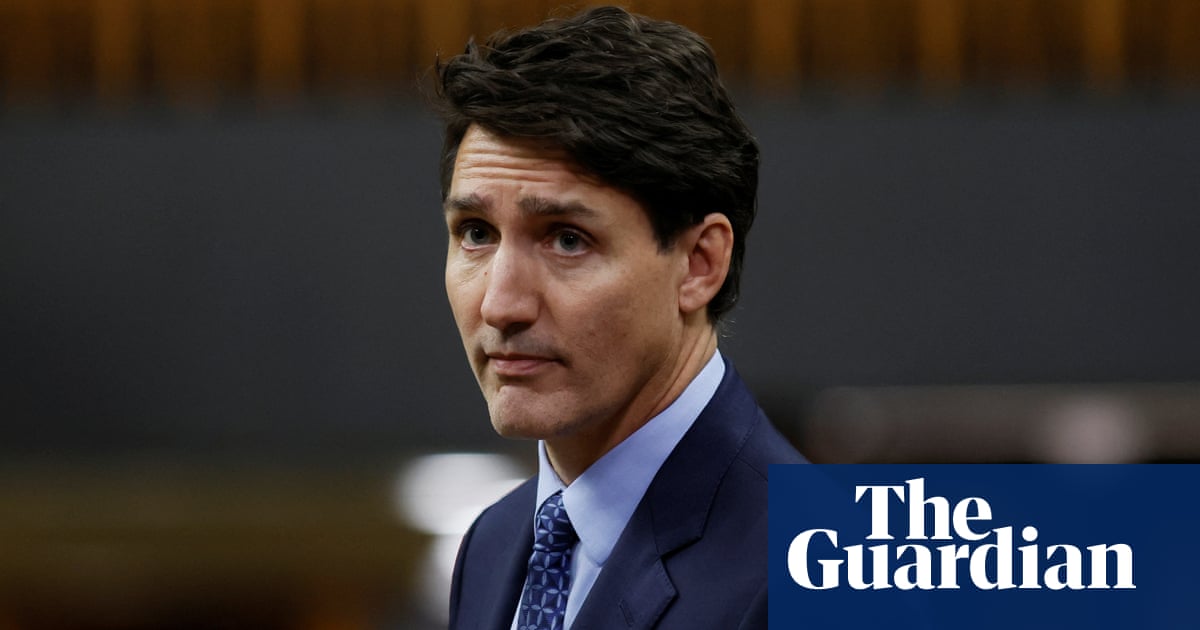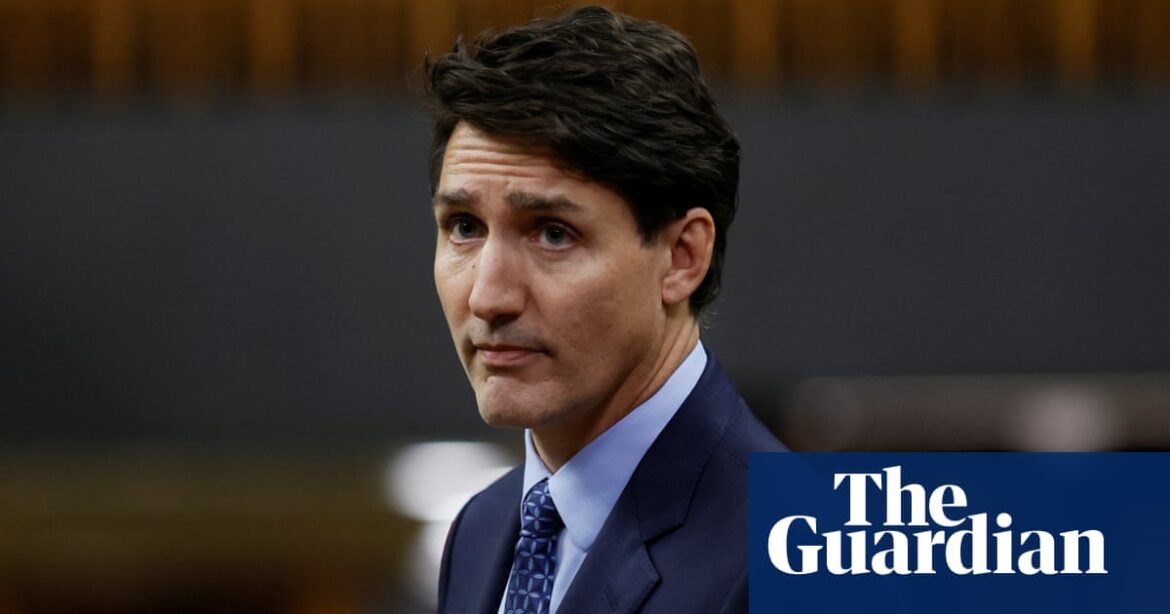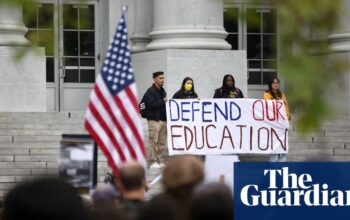
The leader of the Quebec independence party propping up the government of Justin Trudeau has insisted that the political lifeline depends on the quick passage of two pieces of legislation, and warned Canada’s embattled prime minister that he remains “very vulnerable”.
The Bloc Québécois leader, Yves-François Blanchet, told the Guardian the Liberals must act swiftly to enshrine protections for dairy farmers and boost payments to seniors to stave off a fatal vote of non-confidence. He warned that unless both pieces of legislation are passed into law by 29 October, his party would begin discussions with other parties to trigger a federal election.
“We have not had a friendly relationship with the Liberals for the last five years,” said Blanchet. “But we saw an opportunity to pursue issues that were good for Quebecers and also good for Canadians.”
The Bloc’s newfound political power follows a tumultuous month in parliament, in which Jagmeet Singh, leader of the leftwing New Democratic party (NDP) – ended a pact with Trudeau’s Liberals. Since then the Conservatives have twice attempted to topple the government with no-confidence votes, both of which failed.
Amid the instability, Blanchet’s party sensed a rare political opening.
The Bloc carefully assessed which pieces of legislation might be able to drive a wedge between Liberals and the NDP in order to extract as much political benefit as he could for his constituents. They settled on a bill to enshrine protection for dairy farmers and another that hikes payouts for seniors – two key voting constituencies for the party.
The party only fields candidates in the province of Quebec, but despite its narrow geographic range it exerts a disproportionate electoral force, with 32 seats in the House of Commons.
Formed in 1990 with the aim of promoting Quebec sovereignty at the federal level, the Bloc was initially envisioned as a temporary stopgap to a successful referendum on secession from Canada. But separatists narrowly lost a 1995 plebiscite, transforming the party into a permanent fixture of federal politics..
On many cultural issues, including on climate and LGBTQ+ rights, the Bloc tacks left of centre. Blanchet has called the British monarchy “racist”, “humiliating” and “almost archeological” in repeated calls for it to be scrapped as the foundation of Canada’s political system. But the party has also frustrated federal politicians for defending discriminatory provincial laws that run afoul of the country’s Charter of Rights and Freedoms, including a contentious law that bans religious symbols and disproportionately affects Muslim women.
Of the two pieces of legislation Blanchet is wielding as a bargaining chip, the 10% increase to seniors’ retirement income would cost C$16bn (US$12bn) over the next five years, according to the parliamentary budget officer, a figure Liberals warned was too costly.
The federal labour minister, Steven MacKinnon, this week dismissed the Blocas “separatists”, agitating for an election “to usher in a Conservative government that … would bring in the winning conditions for their sovereignty project”.
Other Liberals have been more cautious in their criticism. The parliamentary secretary, Adam van Koeverden, told reporters “the Bloc’s heart is in the right place” but suggested there were other routes to addressing poverty among seniors.
A loss of the Bloc’s support would not immediately trigger an election, as the Liberal minority is strong enough that it requires only one additional party to back it to remain in power, and experts say the NDP would prefer to keep Trudeau in power, rather than face an election.
But Blanchet’s posturing reflects a shifting political landscape.
Recent polling suggests the Bloc will dominate Quebec in the next election, wiping out a Liberal grip on key ridings needed for Trudeau to remain in power. That popularity mirrors a similar surge in support for the Parti Québécois, a provincial party whose leader has revived the prospect of a push to separate from Canada.
Blanchet says voters in Quebec are drawn to the Bloc because they see other party leaders “behaving like bad kids in the schoolyards” while his party remain “serious, responsible, coherent” in parliament. “Quebecers preferred that to the style of [Conservative leader Pierre] Poilievre and they are very, very tired with Mr Trudeau.”
He also believes the appeal lies in a way federal leaders attempt to court both Quebec voters, as well as those across the country.
“In order to please Quebec and Canada, Canadian party leaders tend to say one thing in French and another one in English. And it’s not the same. And eventually it shows. What’s good for Canada is not always good for Quebec, and what’s good for Quebec is not always good for Canada,” he said.
“People in Quebec see that we have their interests in mind. It’s strange to say, but the party with the clearest vision in parliament is the Bloc Quebecois. And we have a distinct advantage. Why? Because unlike the other parties, the Bloc does not want to become the government of Canada.”
Source: theguardian.com



